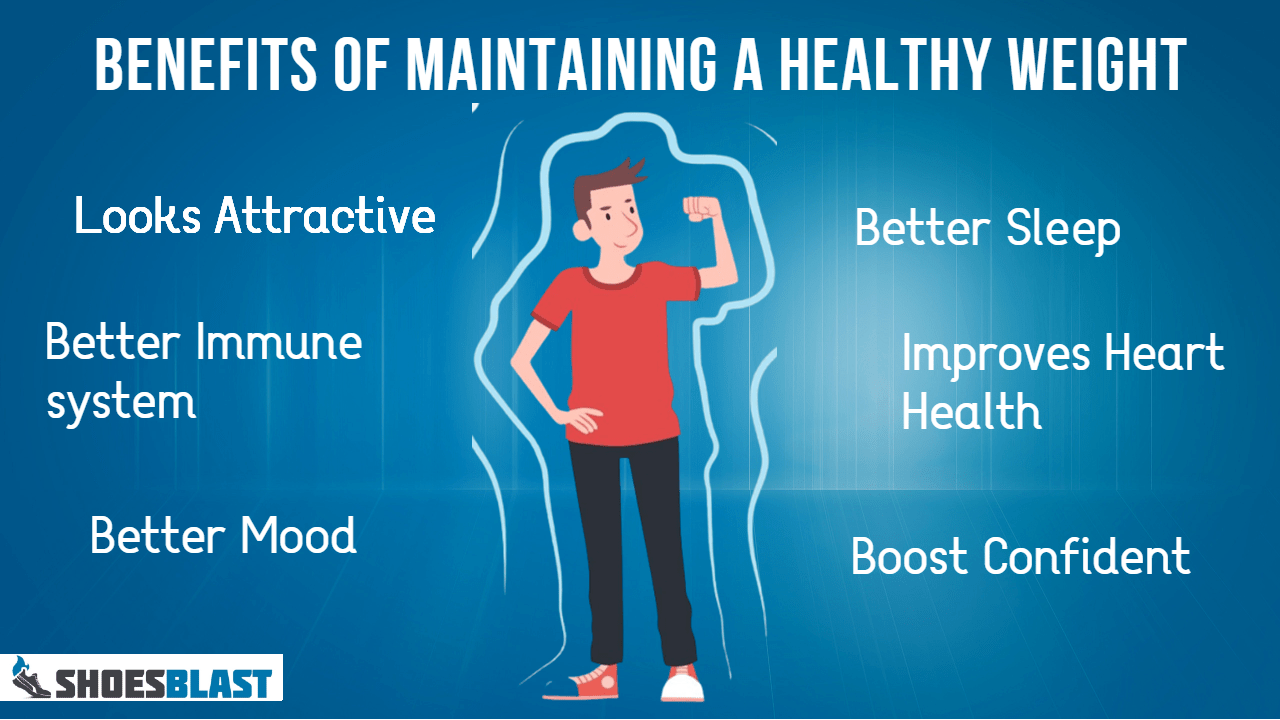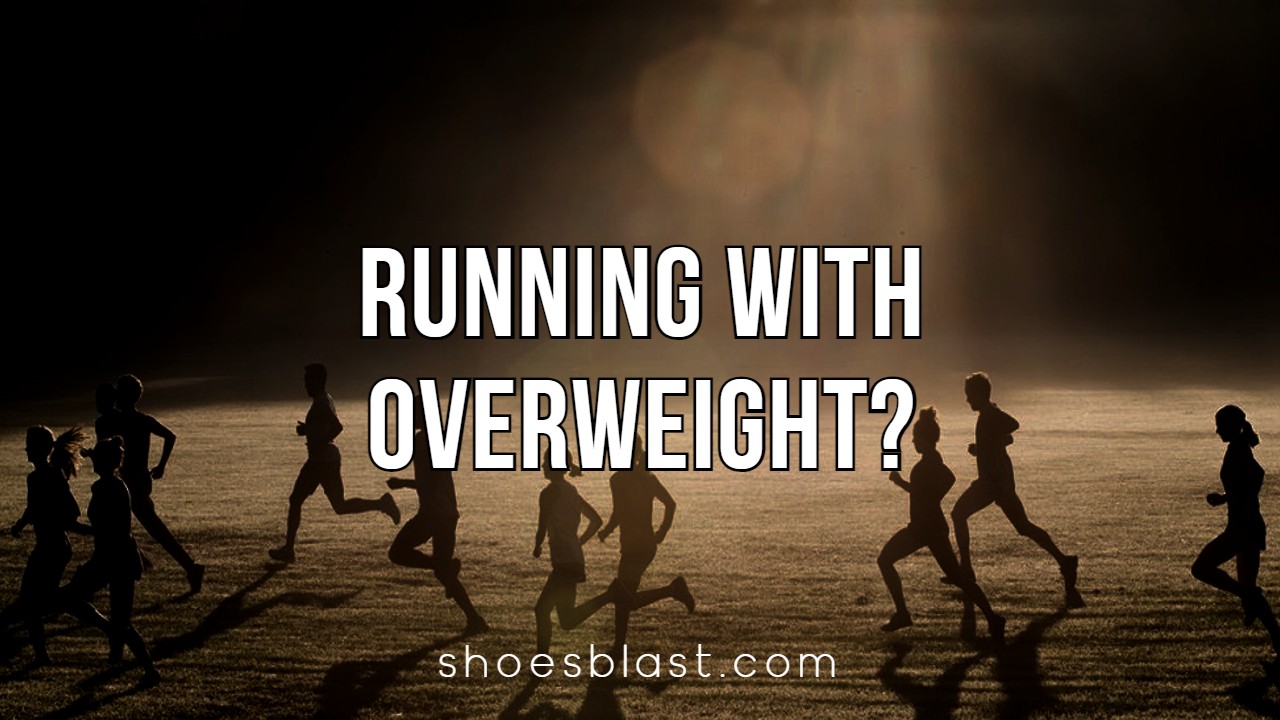[box]
The popularity of running has increased rapidly due to its unlimited health benefits. There are enormous physiological benefits of running but one of its most significant benefits is weight loss. As a result, many overweight people consider running a form of exercise that can help them lose weight in an enjoyable way. But hold on!
[/box]
Is Running Safe For Overweight Runners?
[box]
Even though running positively affects health and fitness, being overweight can make you highly vulnerable to several musculoskeletal disorders and running-related injuries. But running is also far better than staying overweight, isn’t that so? So what is the solution then?
Let’s read this article till the end and know all the answers to the most asked questions and possible queries regarding this most important topic.
[/box]
Are you Really Overweight?
[box]
Guessing yourself fatter than your skinny friend does not mean that you are actually overweight. It is suitable that you know your body status with exact parameters because sometimes we are involved in building a perception that is nothing but over-consciousness with respect to our physique.
BMI (Body Mass Index) calculation is a global standard of checking body fat that further measures the risk of health problems like heart diseases, obesity, diabetes, etc. in a person’s body.
If its ratio is above 18.5 and below 25, you are supposed to be a healthy individual. But if it crosses 25 then you will be declared as overweight. Click here to find out your BMI.
[/box]
Overweight Or Obese?
[box]
According to World Health Organization, if your BMI result shows a ratio above 25, you declare as overweight. But if your BMI crosses 30 then this indicates obesity (WHO, 2021).
So you know that if you do not concern about being overweight, this will lead you straight to obesity which brings quite dangerous health-related conditions, including renowned fatal diseases.
[/box]

4 Risks Of Running With Overweight
[box]
Running is one of the most effective ways to lose weight, but it is also an intense workout for your body. And when you are already overweight, it may also negatively impact your health, especially your bones and muscles. There are some common risk factors that are observed in overweight runners.
[/box]
1- Knee Joint Injury
[box]
Athletes, in general, are at greater risk of joint injuries, but overweight individuals have a much higher risk. Running long distances with extra pounds of body weight can cause a serious joint injury.
This can put more stress on your joints in which the knee joint is more vulnerable due to bearing and transferring a load of the upper body to your feet along with quick dynamic moves. The most common of these to be seen is “Runner’s knee”.
See common knee injuries from running.
As soon as you feel strain around your kneecap, stop immediately and take a few days off if necessary or consult your DPT if it does not go.
[/box]
2- Stress Fractures
[box]
Individuals running with excess weight are more likely to suffer from stress fractures in their feet and shins. These are basically small tiny cracks present anywhere in the bone, from your toes to your heel and to the shaft of your shins.
These fractures often occur when bones and muscles are not able to bear the high pressure or shock that is being applied due to extra body weight plus running stress.
[/box]
3- Foot Pain
[box]
Your foot plays one of the major roles in weight transference to the ground and receives ground reaction force back. Having extra pounds can overload your ankles and feet, which results in early exhaustion when you follow running as an intense workout.
This is why your extra pounds make your ankles and feet more prone to injuries such as Achilles tendonitis, plantar fasciitis, etc.
[/box]
4- Shin Splints
[box]
A Shin splint is a dull, achy pain in your legs that is the result of overusing and stressing your lower legs. It is common among runners who do not take precautions to prevent this condition. And when it comes to an overweight runner, he becomes the riskiest among all due to the immense pressure of excessive body weight while running.
[/box]
How Should You Start Running As An Overweight?
[box]
Now, You know that there are so many musculoskeletal factors directly involved while running with overweight, which badly impacts the body. So there are a few steps you must follow before initiating your running program. So that you will be enough comfortable and way more confident to lose weight and achieve your all goals.
[/box]
1- Consult With a Medical Person
[box]
First of all, see your doctor and let him take your complete check-up.
It is necessary if you fall into middle age. Your previous medical histories like your heart condition (regarding blood pressure levels, etc.), your bones’ health, history of respiratory disease (if any), or any genetic disease from
your parents will be noted by your doctor.
Any of these will not prevent you from running; in addition, running is beneficial in all of these conditions. But by this clinical visit, a better suggestion and running plan can be given to you by your DPT, accordingly.
[/box]
2- Strengthen Your Major Muscles
[box]
As we have discussed above and seen that most of the major injuries occurring in overweight runners were due to their weak muscles, tendons, and ligaments.
That is why strengthening your lower leg muscles by their particular exercises is the best way to secure yourself from any acute ‘running-related injury’ (RRI).
Squats, Toe-standing, Burpees, and High Knees (2-3 sets of 12 repetitions) are the best lower leg and core strengthening exercises.
Doing these exercises on alternate days of the week will not only strengthen your muscles for improved running performance but will also help you in burning calories and improve your cardiovascular fitness for running.
[/box]
3- Eat healthily
[box]

Just like all vehicles need fuel to perform their functions, in the same manner, our body needs healthy and balanced nutrients to perform its function with adequate strength.
Just like a car can never run on vegetable oil as its fuel, our muscles can never function at their optimum if it is dosed with carbonated soft drinks and junked-deeply fried “cholesterol foods“.
So bless your body with its real fuel, a balanced diet. And it should be enriched with potassium, calcium, magnesium, and protein nutrients. This will boost up your muscle strength and will make it a tough time endurable beast
with minimized chances of fatigue while running and exercising.
[/box]
4- Let’s Go Shoe Shopping.
[box]
You are done with your medical check-up, your muscles strengthening and now your muscles are enriched with Hi-octane fuel of healthy nutrients as well.
Now, you are hell crazy to break the chains and start running into the ground but wait!! Are you going to do this barefoot?
Get the right pair of shoes with respect to your foot arch. Your shoes must have more cushioning because being an overweight person; your foot needs to absorb more impact on ground hit. This will prevent you from stress
fractures and other foot injuries.
See our recommendations for the best running shoes for heavy runners.
[/box]
5- Warm-Up Before Running
[box]
Before you start running, remember to do a warm-up. This can include brisk walking, side-stepping, on-place jumps, etc. This helps in circulating your blood thoroughly in your muscles and makes them warm to escape from any
overstretch, muscle pull and probable tendonitis, etc.
[/box]
6- Start Slow, Increase Gradually
[box]
It is a wise suggestion that never try too hard in the beginning. This will lead to disappointment and will result in not achieving your goal.
To avoid any possible injury, start slowly but do it consistently. Set the goal of running for only 15 minutes for the first week. If it sounds hard, alter some more minutes. And when you think that these 15 minutes are not tiring you enough, gradually increase your time and lapse.
[/box]
7- Do Not Pause, Switch to Walk
[box]
Do not let yourself extremely tired of running. But when you feel a little sign of tiredness and Overbreathe, just switch to walking.
For example, after 1 minute of running, switch to a brisk walk for 2-3 minutes. And when you feel you can
continue running for the next 1 minute (or what your goal is), and go with that flow.
See how much running is too much.
[/box]
8- It’s time to run FAST
[box]
You can begin to speed up once your endurance has built. Increase your warm-up time to twice. And right after that, run faster. While running you will definitely reach up heavy breathing but you have to sustain until your last limit.
After continuous running for about a minute, take time to recover yourself by switching to a jog or brisk walk.
[/box]
9- Stay Hydrated
[box]
Salt and other minerals are lost rapidly through sweat in a vigorous workout and so in running. This causes the occurrence of muscle cramps and other related conditions in the lower extremities. So stay hydrated before, during, and after running.
Remember, it doesn’t mean that you start drinking 1 liter per minute. It should be done in sips after your lapse completion.
[/box]
How Overweight Runners Can Achieve Weight Loss Goals?
[box]

Most people think that eating less will help them in reducing weight which is a false assumption. Here are some simple tips to note down:
[/box]
(National Health Services, UK, 2019)
1- Do not skip breakfast:
[box]
Breakfast is important for losing weight. Missing breakfast could deprive you of essential nutrients and you might snack more throughout the day because you are hungry.
See the pros and cons of running with an empty stomach.
[/box]
2- Eat Regular Meals:
[box]
By eating on a regular schedule, calories are burned faster and the temptation to snack on sugary and fattening foods is also reduced.
[/box]
3- Eat plenty of fruits and vegetables:
[box]
Make fruits and veggies your favorites if they were not till now. They have got the 3 most essential ingredients for successful weight loss. low in calories, low in fat, and high in fibers.
They also contain plenty of vitamins and minerals which break down fat from the bloodstream and preserve thermogenesis, accelerating the weight loss process.
[/box]
4- Eat fiber-enrich foods:
[box]
Eating foods that contain fiber is helpful to lose weight. Fiber is found only in plant-based foods, such as fruit and vegetables, oats, wholegrain bread, brown rice, pasta, beans, peas, and lentils.
[/box]
5- Use a Smaller Plate:
[box]
Smaller plates can help you eat a smaller portion. Using smaller plates and bowls can help you gradually get used to eating smaller portions without going hungry.
It takes about 20 minutes for your stomach to tell your brain you’re full, so eat slowly and stop before you’re full.
[/box]
6- Do not stock junk food:
[box]
Do not keep junk food at home, including baked pastries, biscuits, donuts, and sugary fizzy drinks. Instead, keep fruits, unsalted rice cakes, oat cakes, and fruit juice in the refrigerator.
[/box]
Can Running a Day Really Help in Losing Weight?
[box]
According to an article published by American Council on Exercise (ACE) in 2009, a 120-pound person burns 11.4 calories in a minute while running, a 140-pound person sheds 13.2 calories and a person who weighs 160 pounds will burns 15.1 calories.
While, overweight and obese people who generally have 180-pounds and plus weight, and height around 5’10, might burn 17 and more calories in a minute during a run.
[/box]
(American Council on Exercise®, 2009)
Did You Know?
In some recent global estimate surveys conducted in 2016, the WHO reported that:
- More than 1.9 billion adults who’re aged 18 and older were found
overweight with a ratio of 39% men and 40% women. - More than 340 million children and adolescents between the ages of 5 and 19 were overweight or obese (World Health Organization, 2021).
